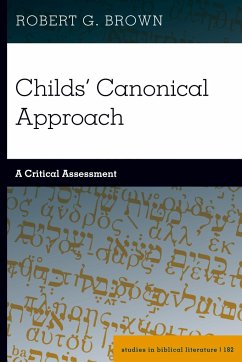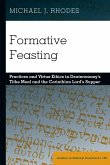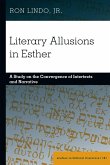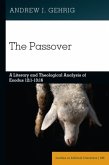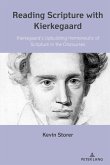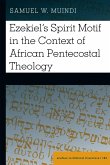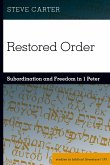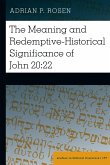How should Christians read the Bible to learn about God? This is a perennial issue in Christianity and a variety of answers have of course been given over time. Perhaps the most profound answer to this question in the twentieth century came from Brevard S. Childs, an Old Testament professor, whose 'canonical approach' sought to redefi ne how the Bible is used in the Church.
Childs' Canonical Approach: A Critical Assessment provides a fresh study of Childs' approach from the perspective of biblical studies. It makes two arguments that break new ground. Firstly, it argues that Childs' approach consists of three main elements that were variously developed and implemented over time: the theory of canonical shaping; the prioritization of the canonical texts; and the search for the Bible's subject matter. Secondly, it argues that, though rich and informed, these elements are ultimately unjustifiable and thus that the canonical approach is a failure.
This book provides an insightful contribution to the ongoing academic debate on Childs' canonical approach. It is also an excellent primer for students interested in Childs, or who are generally considering how to read the Bible theologically.
The 'canonical approach' to the Bible pioneered by Brevard S. Childs appeals to many Christians who want to understand Scripture as a coherent and self-consistent work in the form it now has - however it came into being. In this dissenting examination of 'canonical reading' Robert Brown shows that it comes at too high a price, obscuring the diversity of Scripture and flattening it out. Those attracted by the approach, as a way of finding positive and constructive teaching in the Bible, will be forced to look critically at its possible drawbacks too. A clear and incisive critique of a much-lauded current fashion in biblical interpretation, seen by many as a way to 'reclaim' the Bible for the church.
-(John Barton, FBA, Emeritus Oriel & Laing Professor of the Interpretation of Holy Scripture, University of Oxford, and Senior Research Fellow of Campion Hall, Oxford)
The task of reuniting biblical studies and theology is a crucial one for both disciplines, at least for those, like Robert Brown, who seek to understand how the scriptures speak to them of God. For many, the work of Brevard Childs has seemed to be the magic bullet, but his work is too often misunderstood by admirer and detractor alike. This careful study addresses these misunderstandings with clarity and precision, offers a much-needed analysis of the central concept of 'canonical shaping', and suggests ways forward that unite the synchronic and the historical-critical approaches. It is essential reading for anyone aspiring to do biblical theology in the 21st century.
-(Richard Ounsworth, Fellow and Tutor in Scripture at Blackfriars, Oxford)
Childs' Canonical Approach: A Critical Assessment provides a fresh study of Childs' approach from the perspective of biblical studies. It makes two arguments that break new ground. Firstly, it argues that Childs' approach consists of three main elements that were variously developed and implemented over time: the theory of canonical shaping; the prioritization of the canonical texts; and the search for the Bible's subject matter. Secondly, it argues that, though rich and informed, these elements are ultimately unjustifiable and thus that the canonical approach is a failure.
This book provides an insightful contribution to the ongoing academic debate on Childs' canonical approach. It is also an excellent primer for students interested in Childs, or who are generally considering how to read the Bible theologically.
The 'canonical approach' to the Bible pioneered by Brevard S. Childs appeals to many Christians who want to understand Scripture as a coherent and self-consistent work in the form it now has - however it came into being. In this dissenting examination of 'canonical reading' Robert Brown shows that it comes at too high a price, obscuring the diversity of Scripture and flattening it out. Those attracted by the approach, as a way of finding positive and constructive teaching in the Bible, will be forced to look critically at its possible drawbacks too. A clear and incisive critique of a much-lauded current fashion in biblical interpretation, seen by many as a way to 'reclaim' the Bible for the church.
-(John Barton, FBA, Emeritus Oriel & Laing Professor of the Interpretation of Holy Scripture, University of Oxford, and Senior Research Fellow of Campion Hall, Oxford)
The task of reuniting biblical studies and theology is a crucial one for both disciplines, at least for those, like Robert Brown, who seek to understand how the scriptures speak to them of God. For many, the work of Brevard Childs has seemed to be the magic bullet, but his work is too often misunderstood by admirer and detractor alike. This careful study addresses these misunderstandings with clarity and precision, offers a much-needed analysis of the central concept of 'canonical shaping', and suggests ways forward that unite the synchronic and the historical-critical approaches. It is essential reading for anyone aspiring to do biblical theology in the 21st century.
-(Richard Ounsworth, Fellow and Tutor in Scripture at Blackfriars, Oxford)
The 'canonical approach' to the Bible pioneered by Brevard S. Childs appeals to many Christians who want to understand Scripture as a coherent and self-consistent work in the form it now has - however it came into being. In this dissenting examination of 'canonical reading' Robert Brown shows that it comes at too high a price, obscuring the diversity of Scripture and flattening it out. Those attracted by the approach, as a way of finding positive and constructive teaching in the Bible, will be forced to look critically at its possible drawbacks too. A clear and incisive critique of a much-lauded current fashion in biblical interpretation, seen by many as a way to 'reclaim' the Bible for the church. (John Barton, FBA, Emeritus Oriel & Laing Professor of the Interpretation of Holy Scripture, University of Oxford, and Senior Research Fellow of Campion Hall, Oxford) The task of reuniting biblical studies and theology is a crucial one for both disciplines, at least for those, like Robert Brown, who seek to understand how the scriptures speak to them of God. For many, the work of Brevard Childs has seemed to be the magic bullet, but his work is too often misunderstood by admirer and detractor alike. This careful study addresses these misunderstandings with clarity and precision, offers a much-needed analysis of the central concept of 'canonical shaping', and suggests ways forward that unite the synchronic and the historical-critical approaches. It is essential reading for anyone aspiring to do biblical theology in the 21st century. (Richard Ounsworth, Fellow and Tutor in Scripture at Blackfriars, Oxford)

